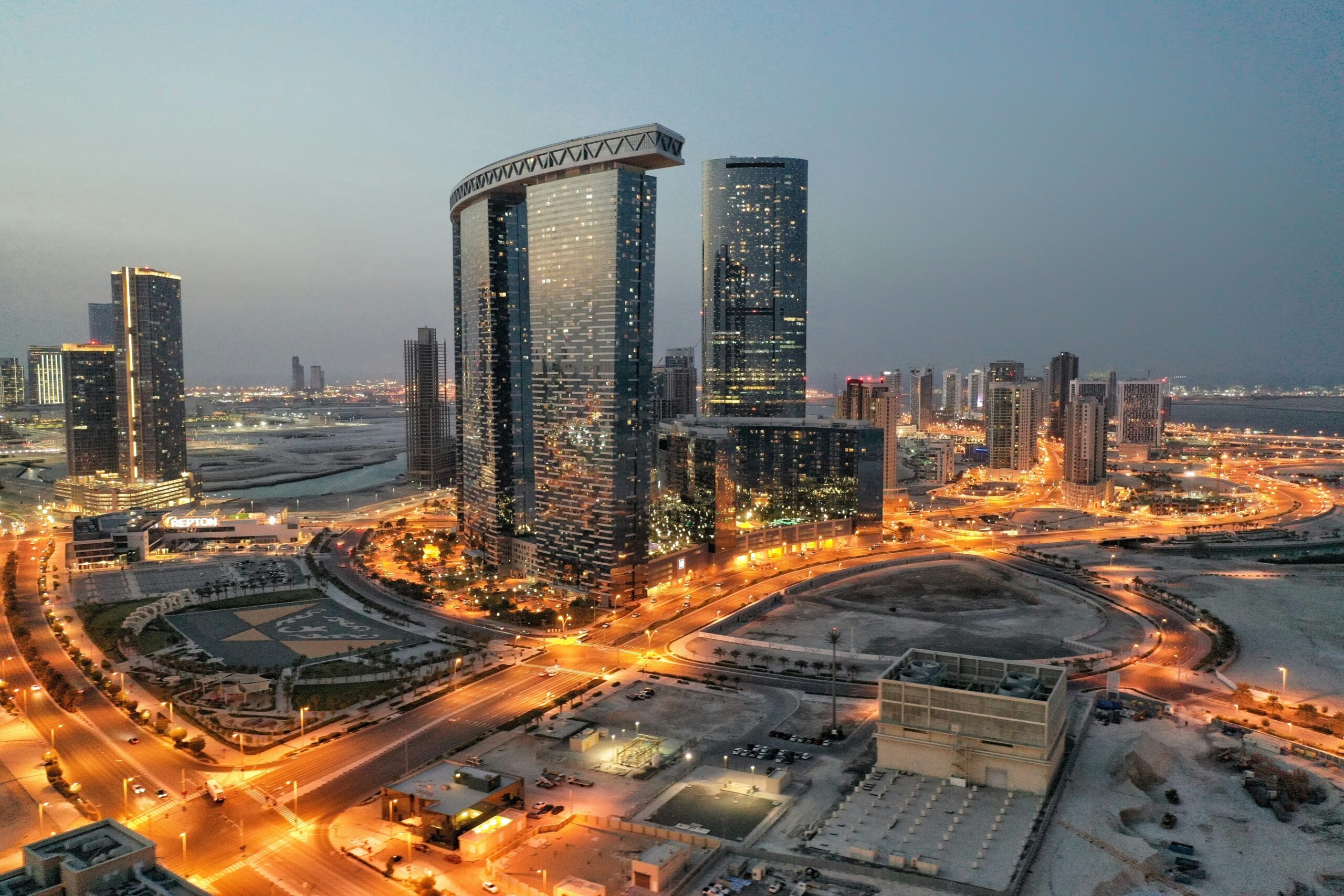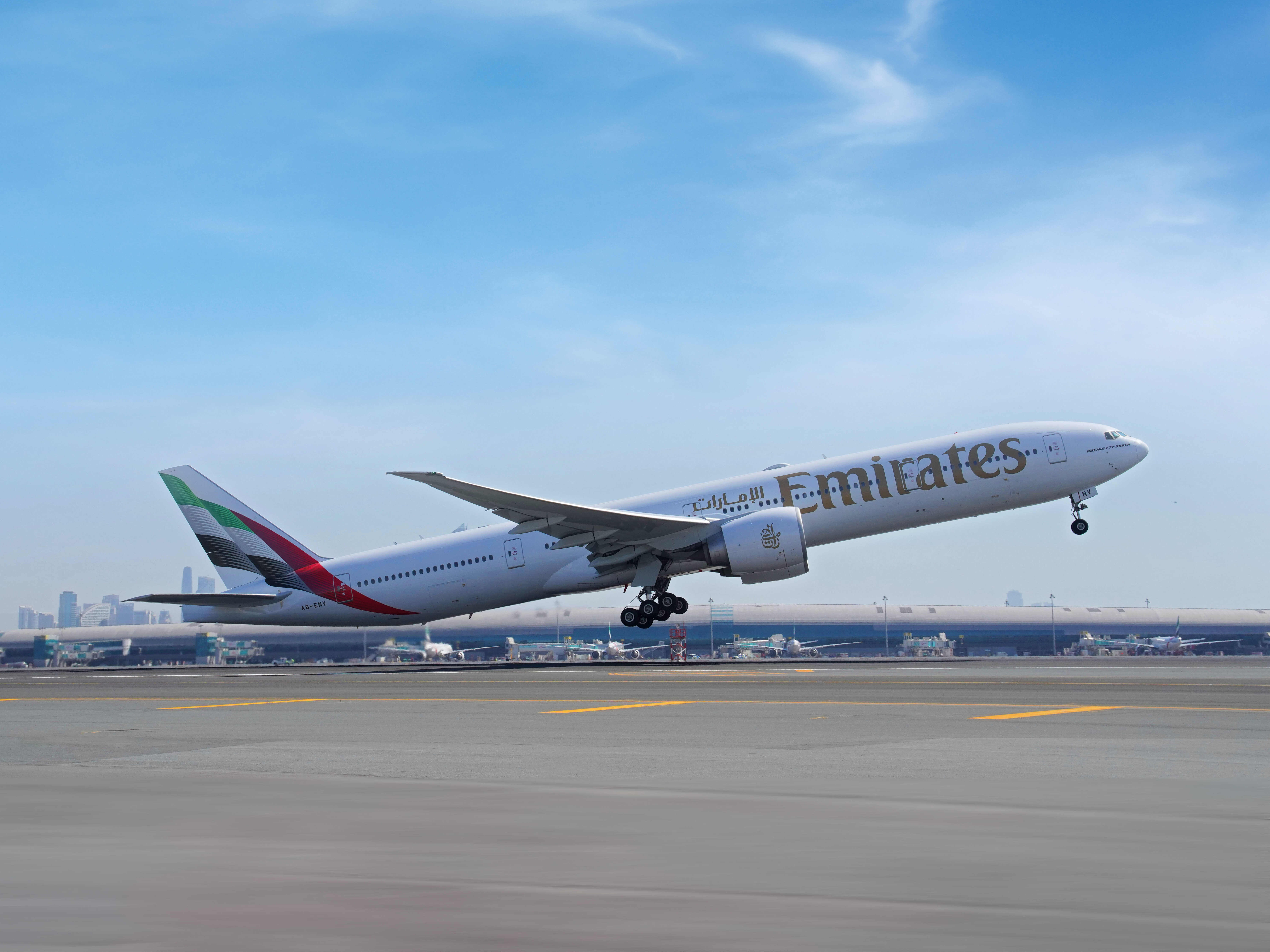Riyadh Air CEO Teases TWA-Inspired Cabin Crew Fashion: “Style, Elegance, Grace”
With commercial flights to begin next year, Saudi startup airline promises jet-set style and dances around its relationship with embattled Boeing
by Lauren Smith
May 7, 2024
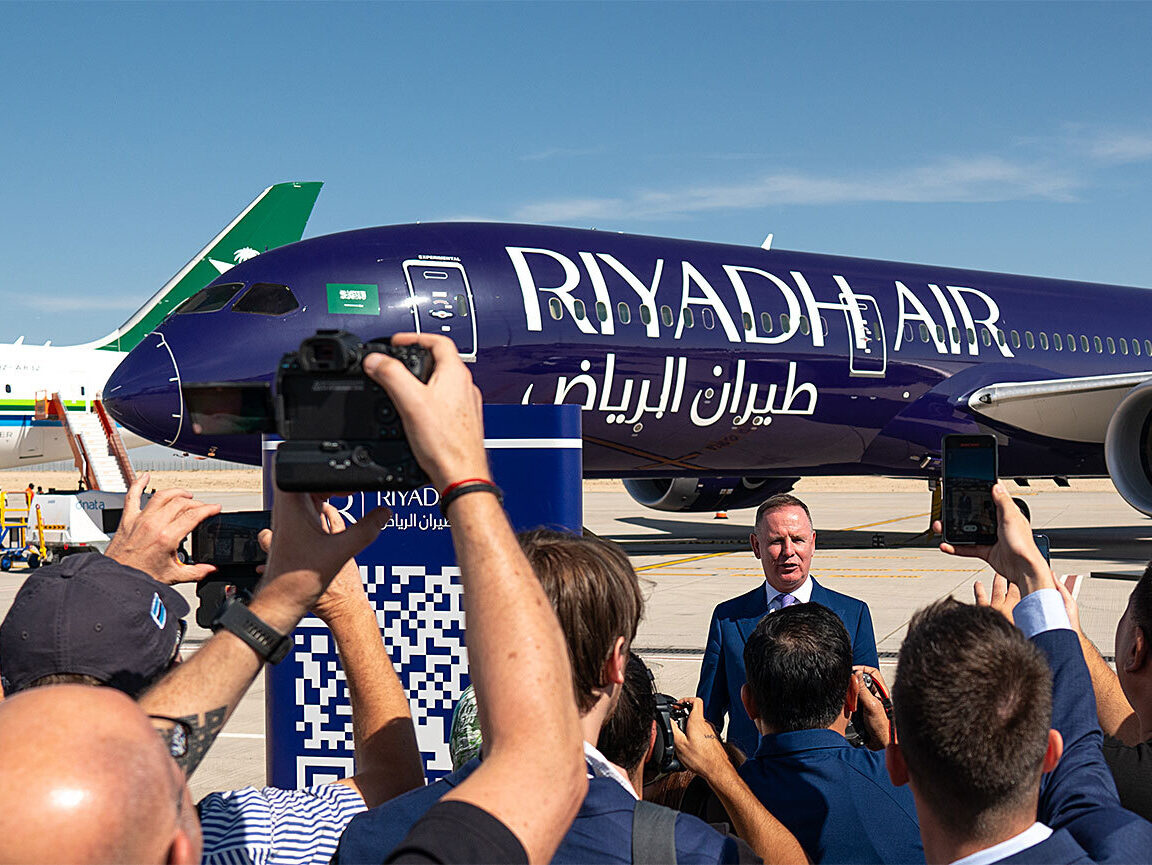
Photo: Courtesy of Riyadh Air
Invoking both Parisian fashion and retro aviation icon Trans World Airlines (TWA), Riyadh Air CEO Tony Douglas said the startup carrier would offer “style, elegance, grace” from its mid-2025 launch, as he spoke to Bloomberg Television in Dubai this week.
“Last year, we were teasing everyone about what we were doing. We’re going to reveal a lot more in the coming months,” he told anchor Joumanna Bercetche.
That includes a debut of its cabin crew fashion in Paris and confirmation of further aircraft orders—both will come soon, he said. “Tease and reveal.”
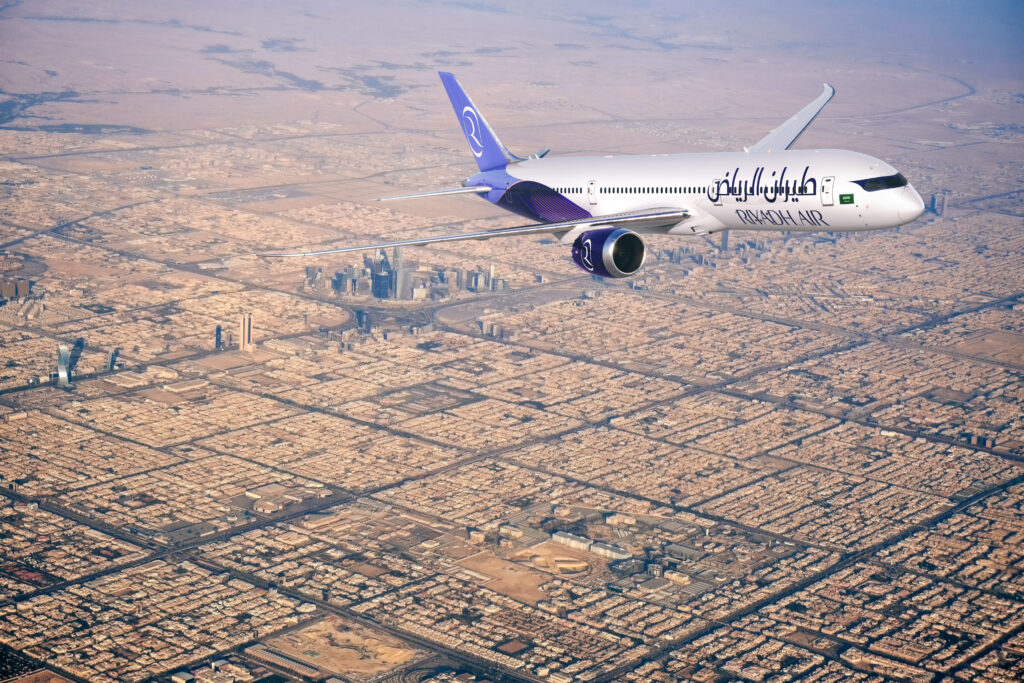
Photo: Courtesy of Riyadh Air
Saudi Arabia has kept its cards close to its chest since announcing the airline, its second flag carrier, in March 2023. The brand-new carrier is part of a $100 billion project, spearheaded by Crown Prince Mohammed bin Salman (MBS), to transform the country into a major tourist destination, with a targeted 100 million visitors annually.
Unlike other Gulf carriers, Emirates, Qatar Airways, and Douglas’s former employer Etihad Airways, Riyadh Air won’t seek to shuttle travelers between hemispheres with brief layovers in the region. Instead, it hopes to bring tourists into Saudi Arabia, with service from more than 100 cities, by the end of the decade.
“The kingdom desperately needs better connectivity, connecting, of course, its citizens to the world and the world to the kingdom of Saudi Arabia,” Douglas said.
To do that, “we need a very large fleet,” he said. Previous reports suggest it could consist of 300 to 400 aircraft.
Last March, Riyadh Air announced that it had ordered up to 72 Boeing 787 Dreamliners. However, the airline hasn’t revealed any further orders, despite stating in November that it would shortly confirm orders of “a sizeable number” of narrow-body aircraft and the importance of single-aisle jets to its network plans.
Pressed by Bercetche on these possible orders, Douglas now said the airline doesn’t think it’s “appropriate to make any announcements until we need to,” citing “too much noise in the marketplace.”
Douglas was more forthcoming at the Arabian Travel Market event last week, saying Riyadh Air already has “a narrow-body position secured” and details would be revealed “in a matter of months.”
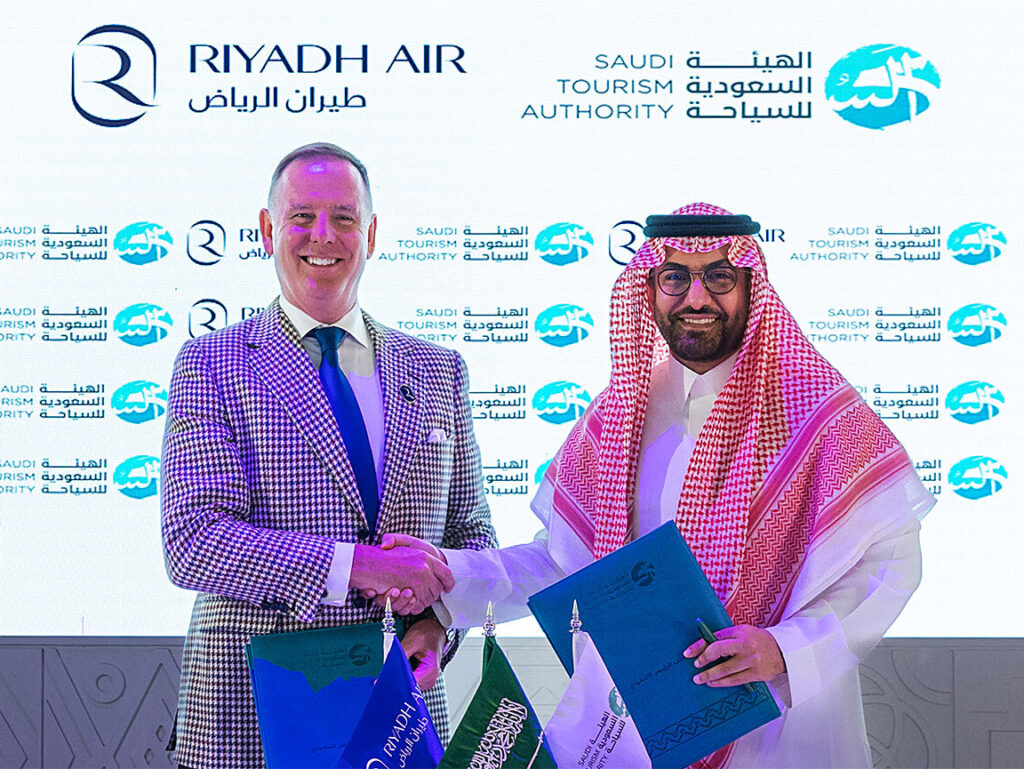
Photo: Riyadh Air CEO Tony Douglas and Tourism Authority partner to enhance the travel experience for travelers. Courtesy of Riyadh Air
Riyadh Air had previously been linked to the Boeing 737 Max. In November 2023, the airline was reportedly circling a deal for 100 of the aircraft.
Since then, the 737 Max and manufacturer Boeing have fallen under scrutiny over a series of malfunctions and near-disasters, most notably an incident in early January when the door of an Alaska Airlines 737 Max 9 ripped off mid-flight, leaving a gaping hole in the fuselage.
“There have been unacceptable situations that Boeing have been dealing with,” Douglas said. “Quality management systems are non-negotiable. They need to be rigorously adhered to in the world of commercial aviation.”
He suggested that the recent mishaps will “act as a reset for Boeing leadership” and said that Riyadh Air continues to have “great relationships” with the company.
However, there’s speculation that Riyadh Air has been quiet about further jet orders because it’s deserted Boeing in favor of Airbus. The airline could be the anonymous carrier who ordered up to 51 A321neos last month or the undisclosed carrier who signed a deal for up to 12 A320neos and 132 A321neos in December.
Meanwhile, Douglas didn’t deny that Riyadh Air was concerned about a delay in the delivery of the 72 Dreamliners it expects, which is crucial to meeting its target of beginning commercial flights by the middle of next year.
“It’s a kind of risk we’re very conscious of,” he said. “As a startup… we don’t have existing aircraft where we can extend leases. We don’t have a network where we can play around with it if they deliver late. So our focus is on our supply chain.”

Photo: Courtesy of Riyadh Air
He pointed out that Airbus has also postponed aircraft deliveries as manufacturers continue to recover from post-Covid supply chain troubles.
But he denied that Riyadh Air would face another issue that has hampered airlines in the post-pandemic era: staff shortages.
Douglas said an application page on the airline’s website has already attracted 1.1 million people from 146 countries.
“I think primarily what’s attracted them is [that Riyadh Air has] been decreed his Royal Highness [King Salman]. It’s not might happen, could happen, should happen. It will happen.”
Indeed, Saudi Arabia has committed $30 billion from its Public Investment Fund to support the airline.
Douglas went on to say that applicants have been attracted by Riyadh Air’s status as “a fresh, vibrant, innovative brand.” Those are adjectives not commonly associated with Saudi Arabia, at least before its tourist-friendly rebranding.
As many of those targeted 100 million annual visitors’ first encounter with the Kingdom, Riyadh Air will shape perceptions. And the image the startup airline wants to project is one of style and sophistication, modeled on commercial aviation’s golden age.
“Thank Catch Me if You Can, DiCaprio going through the airport in those TWA days,” Douglas said, referring to the 2002 film in which Leonardo plays a 1960s con artist who posed as, among other things, a PanAm pilot.
One thing that won’t be retro: Riyadh Air’s in-flight experience. “Later on in the year, all the digital promises we’ve been making, we’re going to reveal them. So the technology we use in lots of other ways in our normal lives will come to the world of commercial aviation,” he teased.
We’ll have to wait for that reveal.
